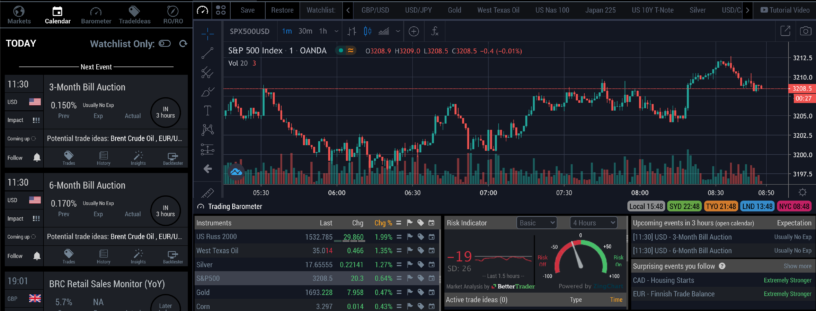Like most crafts, mastering a profession takes countless hours of dedication, practice and perseverance. It may take months, years, if not decades to master a job, especially when it comes to the Forex market. Making money in Forex doesn’t happen overnight, and doesn’t happen for beginning traders. With experience, trial and error, and a little bit of luck, over time inexperienced traders can become experts in their markets.
Many accomplished traders would give advice and tips to younger investors who have been in the industry for some time. These capable investors can offer lessons and feedback to certain strategies that you can’t get anywhere else. If beginning traders are exposed to this kind of knowledge, they can reach a higher success rate quicker than if they relied on themselves. Below, I will describe a few lessons some very proficient traders would offer to less experienced investors.
Don’t Take Every Trade
There is no reason to buy every currency you believe will make money. Odds are, only a fraction of the trends and results you think the market will take will actually occur; it is better to either diversify your risk or to limit yourself to a few currencies in Forex in order to optimize your success. After conducting research and development in the market, you should only take the best currencies you feel will give you the best shot at a profit.
Many strategies generate several or more trades per day, and some traders would buy all of them, which isn’t sustainable. As you gain experience in the field, you will figure out what makes the best trade setups, so that you can improve on better entering certain markets. In addition, you will learn from your mistakes (trial and error) and be better adept at recognizing bad trades and working on ways to avoid them before it’s too late.
Repetition and practice are two of the most important strategies in order to perfect your own individual method for entering and exiting markets. These skills take patience, and if you repeat and practice relying on what you believe works for your procedures in the market, success is just around the corner. Limiting yourself to only the best of the best markets will allow traders to make higher profits and avoid settling for average currencies in Forex.
Improving Your Position in The Market
Through trial and error, each individual trader will fine tune their setups into a market. After mastering your procedure for setup, you will increase your profits and decrease losses over time.
Now that your strategy is tested and proves successful, it’s time for the next step in your trading strategy. Increasing your position sizing is extremely important towards sustaining long-term growth. One way to improve your position sizing is to build your account by the size of your positions (part of this procedure is creating risk parameters and staying within these lines in order to manage your risk).
Making a few more investments in markets you hadn’t entered before, and with the earnings you have made from your previous trades, you can invest more money per trade which will generate more money.
Now that you are a much more seasoned investor, you will have made more money than you did as a novice trader. With the money you have made from past investments, rolling on the momentum you have leading up until this point, you are able to make larger investments which in turn can create higher profits.
The game gets a lot more serious, where you can invest more money than you have ever had before, and the stakes are much higher. You will be able to build your account faster by increasing your win rate and your lot size. As you improve as an investor, there is more money invested and to be made in the market.
Losing is a Part of Winning
Losing in the market is inevitable. If any investor has told you they have never had a negative trade, they are lying. Losing happens so often it is simply part of the investment process. Of course, every investor believes every trade they make is going to be positive, and if you don’t believe in yourself that much, you aren’t in the right profession. Losses are part of the business, but what separates a successful versus unsuccessful investor is how to manage their losses and how they recover from them.
Similarly to running a business, look at losses as expenses like labor, materials and rent. You will always have expenses, but minimizing these “expenses” in the Forex market will allow you to invest more money and eventually make more money per investment. It is a very easy process, but in practice is extremely hard to manage. A great lesson is to put more effort into your trade management than your trade entry strategies.
That way, you will take in fewer losses and take in more profits. The other aspect of losing is your recovery strategy. A poor entry into a market can be salvaged into a minimal loss or even a break-even trade with the help of excellent management skills. Likewise, a great entry can result in a bad loss if you don’t watch the market properly. Reviewing trade management principles and guidelines can help traders stay on track and keep the profits coming. Accepting losing money is the first step towards further success in the market
Conclusion
Every investor experiences loss, and most if not all investors will undergo periods of negative trades whether it’s a few days or weeks. Most traders have their own specific strategies to enter and exit the markets, which they have practiced and refined. But, they don’t always seem to work 100% of the time.
There are many ways for traders to refine strategies and cut losses, while some are more influential than others. For example, limiting yourself to only a certain number of trades will allow an investor to concentrate his focus on a few markets, where they won’t stretch themselves too thin with a lot of different investments. This will lower risk and after conducting research, these markets will give the investor the best odds at profit. Next, is improving your position in the market.
After having tested your strategy and having a better idea of the trends certain markets take, investors will have more money to spend on investments that have more potential in the market, leading to higher profits. Lastly, accepting losses in the investing process is the first step towards success.
Every investor experiences loss, but what separates good from poor investors is their ability to bounce back and recover from negative trades. A strategy may seem like it doesn’t work after a few weeks of losing money, but keeping in mind these lessons and strategies when trying to bring oneself out of this hole, can be the difference towards incredible success.

















